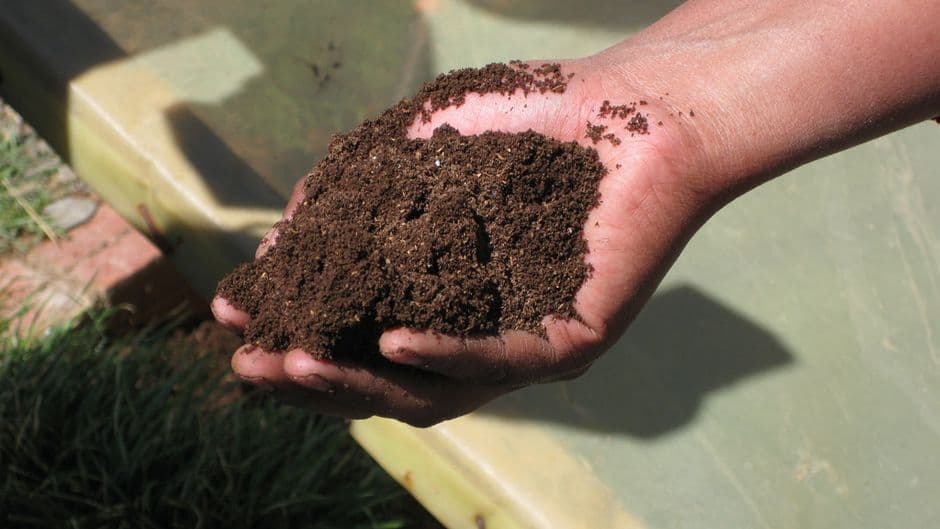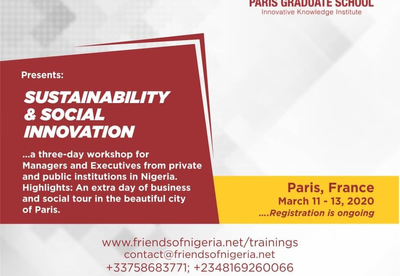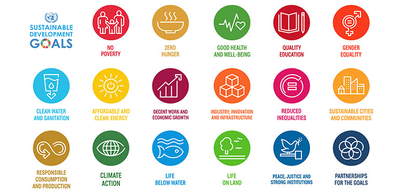Human Waste Reuse: Solution to a Growing Sanitation Problem? – Published by Jeff Smith – Scientists are influencing sanitation policies in South Asia and demonstrating composting technology to turn human faecal sludge into fertilizer pellets for agricultural use. Their work presents solutions for a growing global sanitation problem that can reduce the environmental impact of development and contribute to efforts to sustainably intensify agricultural production.
After examining an International Water Management Institute (IWMI) project on faecal sludge management in Bangladesh the World Bank’s Water and Sanitation Program recently asked IWMI to jointly develop policy advisory notes on wastewater reuse and septage (septic tank sludge) management for the central government of India. IWMI, which leads the CGIAR Research Program on Water, Land and Ecosystems, has also been asked by the World Bank to help develop septage strategies for selected towns in India’s Madhya Pradesh state.
In Sri Lanka, IWMI has signed two national-level memorandums of understanding to help the island-nation improve its septage management policy and develop human waste composting and co-composting initiatives. A project has also commenced in northwestern Sri Lanka to demonstrate techniques for safe composting and turning human waste into a pellet fertilizer.
Turning an environmental and social risk into an opportunity
The work, under WLE’s Resource Recovery and Reuse program, comes amid growing concern about the world’s ability to handle a massive sanitation problem. Rapid urbanization in Asia and Africa has dramatically increased the number of poor people living in the margins of cities, putting immense pressure on already strained water and land resources.
Globally, more than a billion people lack access to adequate sanitation. In India alone more than 160 million septic tanks and pit latrines without septic tanks contribute to surface water pollution due to lack of septage treatment facilities. In Sri Lanka, researchers recently found that only 10 percent of human excreta from septic tanks was being collected, and only 1 percent treated.
Researchers are working to convert human waste into a resource that benefits farmers, creates jobs and generates business opportunities. Business models for faecal sludge management and the production of a safe, high quality fertilizer are being tested in ten cities across the world.
“While human waste management is a challenge, it also offers a business and development opportunity that could benefit millions of poor farmers,” said Pay Drechsel, leader of WLE’s Resource Recovery and Reuse research theme.
The technical knowledge is available. And in many cultures, wastewater reuse and waste composting have a long tradition, at least at the household level. However, local perceptions of the practices vary, as do the capacities of governments and institutions to implement these efforts.
The World Bank’s Water Sanitation Program became interested in WLE’s waste reuse work after visiting a project in Bangladesh where IWMI is working with BRAC, one of the largest NGOs in the world.
BRAC has installed a million single pit latrines across Bangladesh and wanted a solution to manage the collection and treatment of fecal sludge. Researchers worked with a compost company to test a fecal sludge based co-compost technology. Co-composting is the controlled degradation of organic material, using more than one feedstock such as fecal sludge combined with solid waste or sawdust. Composting sanitizes the material and it becomes valuable to the farmer when it is turned into pellets that are less bulky to fertilize crops.
“Reuse helps to not only close the service delivery chain, but also improves the sustainability of the project,” said Joseph Ravikumar, a senior institutional development specialist with the World Bank. “What I saw of IWMI’s work in Bangladesh further strengthened my conviction and it is important to take market opportunities seriously.”
In addition to interest by the World Bank and the Madhya Pradesh state government to adopt the technology in India, there is potential for the research results to be adopted by BRAC in Bangladesh, said Krishna Rao, who leads IWMI’s business model analysis and enterprise development. “The key lesson we’ve learned is the need to match agricultural demands with the engineering know-how in local areas.”
Sri Lanka sees septage solutions as key to sustainable development
As of 2011 less than three percent of Sri Lanka’s population was covered by piped sewage systems, and that service was mainly in the city of Colombo. Elsewhere, there are large numbers of septic tanks and pit latrines that require periodic emptying and disposal. Of the total septage collected from on-site facilities nearly three-quarters is dumped into landfills, depressions or the ocean, according to estimates from a 2013 IWMI field survey.Read More (Courtesy: Our World by United Nations University)




